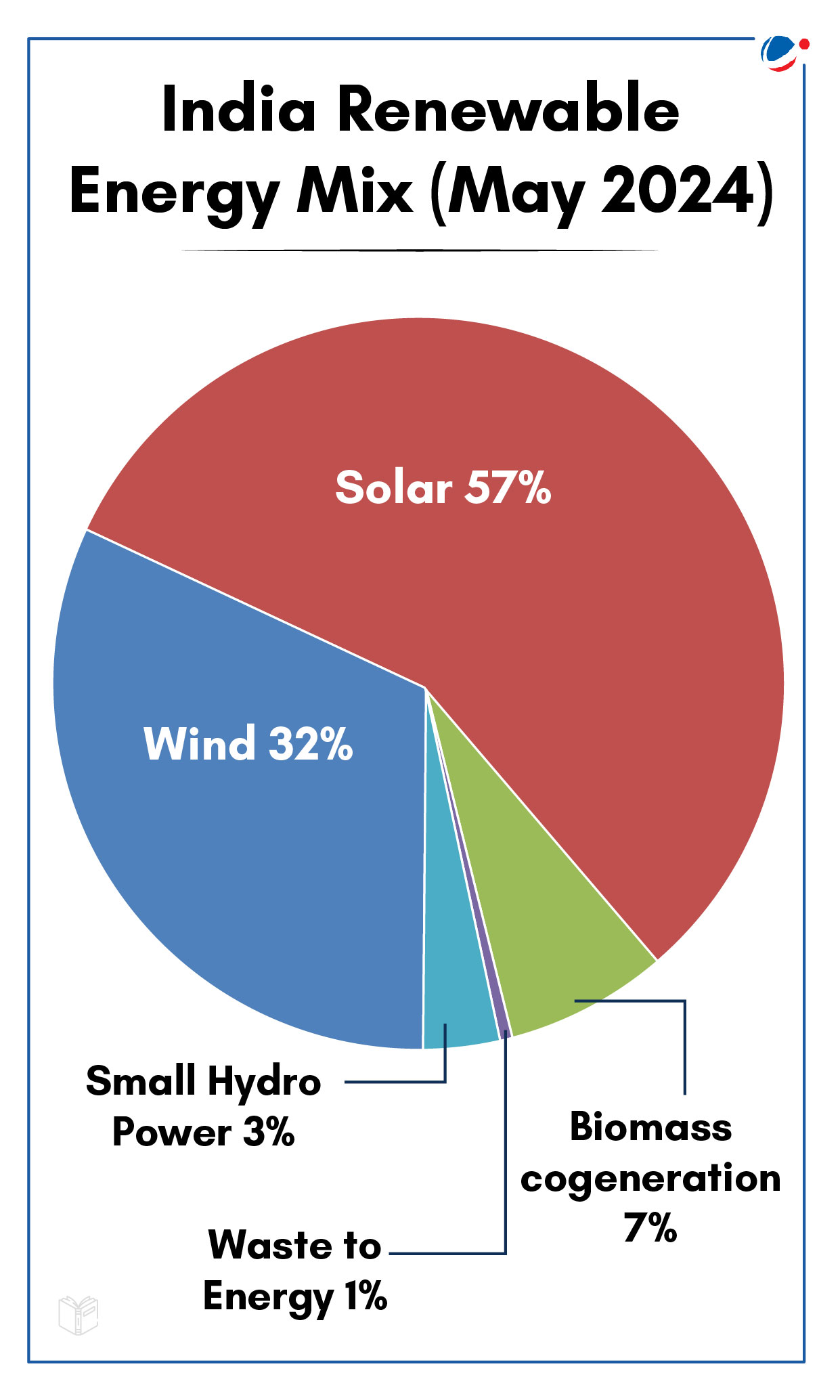Why in the news?
World Economic Forum released "Fostering Effective Energy Transition 2024" report.
More about the news
- Report is based on the Energy Transition Index (ETI) that evaluates 120 countries on their energy system performance and readiness for secure, sustainable, and inclusive energy systems.
- ETI 2024 framework offers a comprehensive assessment of countries' energy systems with a consistent methodology, allowing decisionmakers to compare and track progress.
Key Findings
- India's rank: 63rd (up from 67 in 2023)
- Clean energy infrastructure investments: Reached $1.8 trillion in 2023, with nearly 90% of the growth since 2021 occurring in advanced economies and China.
- Top 5 performers: Sweden, Denmark, Finland, Switzerland and France.
- Six G20 countries are among the top 20 performers: France, Germany, Brazil, China, the UK, and the USA.
- 8 countries reached net-zero emissions in 2022: Bhutan, Comoros, Gabon, Guyana, Madagascar, Niue, Panama, and Suriname
- Generative AI can enable energy companies to save over $500 billion annually.
However, the report highlights that growing uncertainties like economic volatility, heightened geopolitical tensions, and technological shifts are impeding energy transition momentum.
About Energy Transition
India's Status of Clean Energy Transition
|
Challenges in Energy Transition
- Technological Barriers: Clean energy technologies, such as advanced batteries for energy storage or next-generation nuclear reactors, are still in the development or early deployment stages.
- Investment Disparities: Investments in developing nations remain insufficient, and challenges persist within and across countries, especially in energy affordability and access.
- Clean energy infrastructure investments reached $1.8 trillion in 2023, but almost 90% of the growth since 2021 has been in advanced economies and China, highlighting wide gaps in transition momentum.
- Uncertainties in Subsidies and Supply Chains: This was coupled with high interest rates and significant cost increases which reduced returns for developers, deterring much-needed investments in projects.
- Geopolitical Tensions and Trade Protectionism: Growing trade protectionism and geopolitical tensions create headwinds for the energy transition, especially for developing nations.
- Energy Storage limitations: Effective and affordable energy storage solutions are crucial for managing the intermittency of renewable energy sources and ensuring a consistent energy supply.
- Financial and economic barriers: Clean energy projects can be capital-intensive, and their upfront costs are often higher than traditional fossil fuel-based projects.
Way Forward
- Bridge the investment gap: There is need for financial support from advanced nations to facilitate an equitable energy transition in emerging and developing nations while also unlocking more domestic capital in emerging and developing nations.
- Implement regulations to advance decarbonization: Strong political commitment is needed to ensure progress and continuity in decarbonization policies.
- Deliver energy equity for vulnerable households: Such as social safety nets and compensatory measures, including cash transfers and temporary basic income initiatives to alleviate energy-related costs.
- Drive R&D and adoption of new technologies: Including new battery technologies, offshore wind, and green ammonia-based hydrogen for shipping and steel production.
- Make renewable energy technology a global public good: Remove roadblocks to knowledge sharing and technological transfer, including intellectual property rights barriers to make renewable energy technology accessible to all.
- Level the Playing Field for RE Technologies: While global cooperation and coordination is critical, domestic policy frameworks must urgently be reformed to streamline and fast-track renewable energy projects and catalyze private sector investments.
Initiatives to Facilitate Energy Transition
Global | India |
|---|---|
|
|







